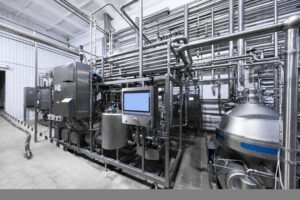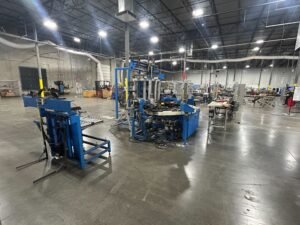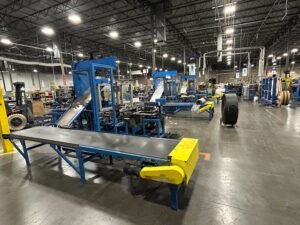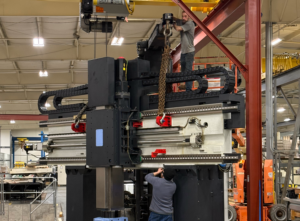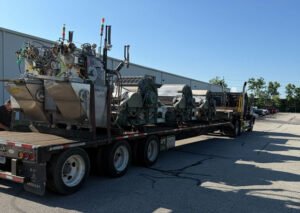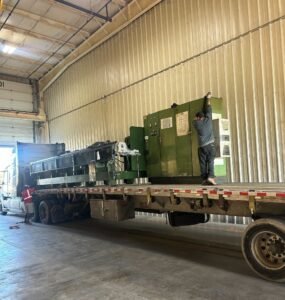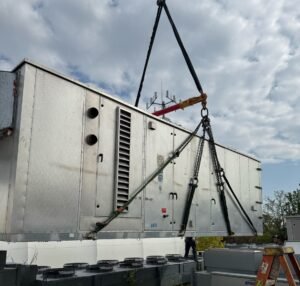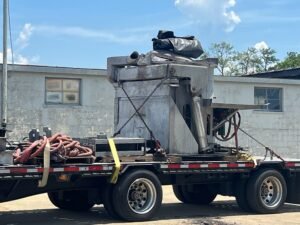The healthcare supply chain is a complex network of processes, organizations, and transportation methods that ensure the timely delivery of medical supplies, equipment, and pharmaceuticals to healthcare facilities. Among the various modes of transportation, trucking plays a pivotal role in this supply chain. This article explores the significance of trucking in the healthcare supply chain, the challenges it faces, and the innovations that are shaping the future of this critical industry.
Introduction to the Healthcare Supply Chain
The healthcare supply chain involves the procurement, production, and distribution of medical products from manufacturers to end-users, such as hospitals, clinics, and pharmacies. It includes a wide range of items, from life-saving medications to everyday medical supplies like syringes and bandages. The efficiency and reliability of this supply chain are crucial for maintaining the quality of patient care.
Importance of Timely Deliveries in Healthcare
Ensuring Patient Care
In healthcare, the timely delivery of supplies is not just a matter of convenience—it is a matter of life and death. Hospitals and clinics rely on a steady flow of medical supplies to provide consistent care. Delays in the delivery of essential items, such as surgical instruments, blood products, or medications, can have dire consequences for patient outcomes.
Reducing Stockouts and Overstocks
Efficient trucking services help healthcare facilities maintain optimal inventory levels, reducing the risk of stockouts and overstocks. Stockouts can lead to treatment delays, while overstocks increase storage costs and the risk of expired products. By ensuring that medical supplies are delivered just in time, trucking helps healthcare providers manage their inventories more effectively.
The Role of Trucking in the Healthcare Supply Chain
Primary Mode of Transportation
Trucking is the primary mode of transportation for healthcare goods within a country, especially in regions where air and rail transport are either unavailable or impractical. Trucks can reach remote and rural areas, making them indispensable for delivering medical supplies to all corners of a nation.
Last-Mile Delivery
In the healthcare supply chain, last-mile delivery refers to the final step of the distribution process, where medical products are delivered from distribution centers to healthcare facilities. Trucking plays a critical role in this stage, ensuring that supplies are delivered directly to the point of care, often within tight timeframes.
Temperature-Controlled Transportation
Many medical products, such as vaccines, blood products, and certain medications, require temperature-controlled environments during transportation. Refrigerated trucks, also known as reefers, are essential for maintaining the integrity of these products during transit. Trucking companies specializing in healthcare logistics must ensure that their fleet is equipped with the necessary technology to monitor and control temperatures throughout the journey.
Challenges Faced by Trucking in the Healthcare Supply Chain
Regulatory Compliance
The transportation of healthcare products is subject to strict regulations to ensure the safety and efficacy of the products. Trucking companies must comply with regulations set by various government agencies, such as the Food and Drug Administration (FDA) in the United States or the European Medicines Agency (EMA) in Europe. These regulations may include guidelines for packaging, labeling, and temperature control.
Risk of Theft and Counterfeiting
Healthcare products, particularly pharmaceuticals, are highly valuable and are often targeted by thieves and counterfeiters. Trucking companies must implement robust security measures to protect their cargo during transit. This may include GPS tracking, secure loading and unloading procedures, and background checks for drivers.
Fuel Costs and Environmental Impact
Rising fuel costs and the environmental impact of trucking are ongoing concerns for the healthcare supply chain. The need for frequent deliveries to maintain inventory levels contributes to fuel consumption and carbon emissions. Trucking companies are under increasing pressure to adopt more fuel-efficient practices and explore alternative fuels to reduce their environmental footprint.
Supply Chain Disruptions
Trucking operations can be disrupted by various factors, including natural disasters, labor strikes, and geopolitical tensions. These disruptions can lead to delays in the delivery of healthcare supplies, potentially compromising patient care. Trucking companies must have contingency plans in place to mitigate the impact of such disruptions on the healthcare supply chain.
Innovations in Healthcare Trucking
Telematics and GPS Tracking
Telematics and GPS tracking technologies have revolutionized the trucking industry by providing real-time data on vehicle locations, driving behavior, and fuel consumption. In healthcare logistics, these technologies are essential for monitoring the status of deliveries, ensuring compliance with regulatory requirements, and optimizing routes to reduce delivery times.
Cold Chain Monitoring
Advancements in cold chain monitoring technology have improved the reliability of temperature-controlled transportation. Modern refrigerated trucks are equipped with sensors that continuously monitor the temperature inside the cargo area and send alerts if there are any deviations from the required range. This ensures that temperature-sensitive medical products remain safe and effective during transit.
Autonomous Trucks
The development of autonomous trucks has the potential to transform the healthcare supply chain by reducing the reliance on human drivers and improving the efficiency of deliveries. Autonomous trucks can operate continuously without the need for rest breaks, potentially reducing delivery times and lowering transportation costs. However, the widespread adoption of autonomous trucks in healthcare logistics will require overcoming regulatory, technological, and safety challenges.
Electric and Hybrid Trucks
To address concerns about fuel costs and environmental impact, many trucking companies are exploring the use of electric and hybrid trucks for healthcare logistics. These vehicles produce fewer emissions than traditional diesel trucks and can reduce operating costs over time. While the adoption of electric and hybrid trucks in healthcare logistics is still in its early stages, it represents a promising step toward more sustainable transportation practices.
Best Practices for Healthcare Trucking
Partnering with Specialized Logistics Providers
Healthcare facilities should consider partnering with logistics providers that specialize in healthcare transportation. These providers have the expertise, technology, and regulatory knowledge to handle the unique challenges of healthcare logistics, ensuring that medical supplies are delivered safely and efficiently.
Implementing Robust Security Measures
To protect valuable healthcare products from theft and counterfeiting, trucking companies should implement robust security measures, including GPS tracking, secure loading and unloading procedures, and driver background checks. Additionally, the use of tamper-evident seals and real-time monitoring of cargo can further enhance security.
Investing in Technology and Innovation
Trucking companies should invest in the latest technologies, such as telematics, cold chain monitoring, and autonomous vehicles, to improve the efficiency and reliability of healthcare logistics. By staying at the forefront of innovation, trucking companies can better meet the demands of the healthcare supply chain and provide superior service to their clients.
Training and Development for Drivers
Drivers play a critical role in the healthcare supply chain, and their training and development should be a top priority for trucking companies. Drivers should receive training on regulatory compliance, safe driving practices, and the handling of temperature-sensitive products. Ongoing professional development can help drivers stay updated on industry best practices and enhance their skills.
Conclusion
Trucking is an essential component of the healthcare supply chain, ensuring the timely and efficient delivery of medical supplies, equipment, and pharmaceuticals to healthcare facilities. Despite the challenges faced by the industry, including regulatory compliance, security risks, and environmental concerns, trucking remains the most reliable and flexible mode of transportation for healthcare logistics.
As the healthcare industry continues to evolve, trucking companies must embrace innovation and adopt best practices to meet the growing demands of the healthcare supply chain. By investing in technology, enhancing security, and prioritizing driver training, trucking companies can play a crucial role in maintaining the quality of patient care and the overall efficiency of the healthcare system.

